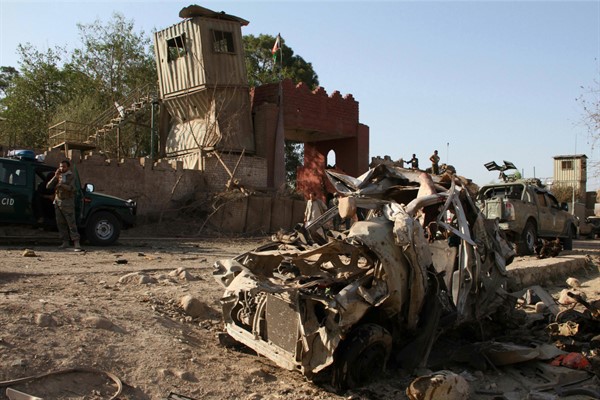After more than a month of negotiations between the Taliban and the Afghan government, progress toward a peace agreement remains slow. The key unknown variable is whether the United States has an appetite for staying involved in the long grind of overseeing a peace process that must reconcile two divergent views of Afghanistan’s future—which can only be answered by the winner of this week’s presidential election. The Taliban recognize this, too, and made a foray into American politics last month, announcing their desire to see President Donald Trump win a second term, before hastily backtracking.
The reason for the Taliban’s interest is clear: Trump is impatient with Afghanistan’s fraught peace process. He recently tweeted that all U.S. troops “should” leave by Christmas, just a day after his chief negotiator in the talks, Zalmay Khalilzad, called for patience. Khalilizad is right; pushing these talks to a rapid conclusion will bring chaos. The Taliban negotiators appear dead set on restoring the features, if not the name, of their “Islamic Emirate” that ruled the country in the 1990s, prior to the 2001 U.S. invasion. Their beleaguered negotiating partners from the Afghan government, meanwhile, are desperate to preserve their current form of government as well as the territory and influence they have. Washington is still the most powerful player in Afghanistan, and whoever occupies the White House will have important choices to make that could shape the future of the Afghan state.
At the outset of negotiations in mid-September, the Afghan government rightly pressed immediately for a cease-fire. But the Taliban, unsurprisingly, have no intention of easing their military pressure on Kabul, which they judge to be their most powerful negotiating leverage and the tool that pulled the U.S., reluctantly, to negotiate with the militant group. Despite the talks, Afghanistan remains plagued by horrific levels of violence, including a suicide bombing last week on an education center in Kabul that killed at least 24 people. The Islamic State’s Afghan affiliate, which has a foothold in parts of the country, claimed responsibility for the attack. In southwestern Helmand province, Taliban fighters are at the gates of the capital, Lashkargah. Both the Taliban and the Afghan military have suffered heavy casualties in the fighting, and tens of thousands of civilians are trapped or have been displaced in recent weeks.

